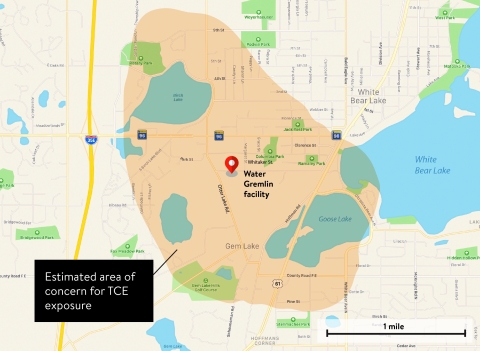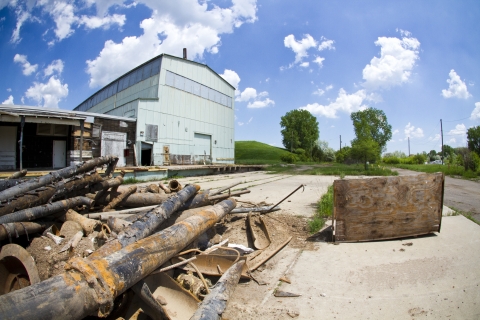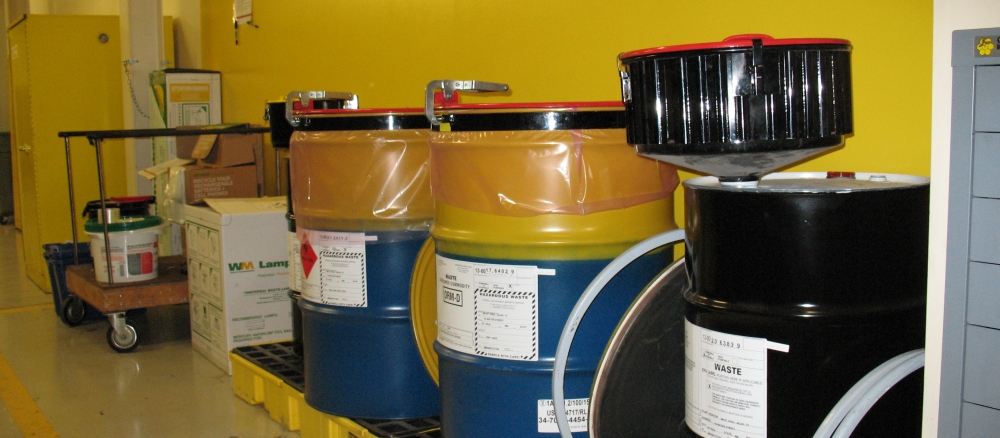New law took full effect June 1, 2023
About a week after she was sworn in as a representative in the Minnesota Legislature, Ami Wazlawik first heard of trichloroethylene. The colorless and odorless chemical otherwise known as TCE had proven cheap and effective as a degreaser and as a result became commonplace in industrial processes across the state. It had also been found to cause cancer.
“As is often the case, you don’t really learn about a chemical until it’s in the news, then you do your research and you wonder, ‘Wow, why are they even using this?’”
More than 130 companies and other facilities across the state had, in fact, been known to use TCE. However, after Minnesota’s TCE ban — which Wazlawik helped pass during her time in the Legislature — went into full effect on June 1, 2023, TCE use has been almost entirely phased out, limited to just three research and development facilities permitted by the Minnesota Pollution Control Agency.
Prior to the ban, the first of its kind in the country, the MPCA had regulated and monitored TCE use. The U.S. Food and Drug Administration had banned the chemical’s use as an anesthetic and as an extraction agent in the food manufacturing process in 1977, and dry cleaners had by and large stopped using it in the 1950s, but it remained in use not just in degreasing metal parts in manufacturing processes but also in general purpose cleaners, in some spray adhesives, in asphalt paving, and in the manufacture of PVC and refrigerants.
Some companies might have just used a few spray cans containing TCE per year while others might have used gallons of it per day, according to Cory Boeck, manager of the Land and Air Compliance Section at the MPCA.
“There were a lot of facilities just here and there across the state that a lot of people might not have realized were using it,” Boeck says.

That all changed in January 2019, when MPCA officials discovered that Water Gremlin, a fishing tackle and battery terminal manufacturer based in White Bear Township that used TCE to degrease lead components, had been emitting TCE far in excess of what its MPCA air permit allowed. As a result, Water Gremlin paid $4.5 million in civil penalties, plus another $2.5 million for mandated air monitoring equipment and environmental projects, making it one of the largest pollution settlements in the state’s history. The settlement also caught the eye of a group of area residents who soon after formed the White Bear Area Neighborhood Concerned Citizens Group.
“A TCE ban was never the objective when we first entered this, but as we learned more it did become our objective,” says Sheri Smith, one member of the group. “We realized this is something that wouldn’t go away on its own."
While the U.S. Environmental Protection Agency began the process of banning TCE on a federal level in late 2016, it has not taken any further action on TCE, other than determining in January of this year that the chemical poses “an unreasonable risk of injury to health.”
According to the Minnesota Department of Health, TCE causes cancer in animals and has been linked to kidney cancer, liver cancer, and non-Hodgkin lymphoma in humans.
Wazlawik, whose district included White Bear Township, says that it shouldn’t be up to individual states to determine whether chemicals like TCE should be used. But in the absence of action at the federal level, “we do what we can do, which is to ban it.”
In addition to the authors of the bill banning TCE — state senators Chuck Wiger and Roger Chamberlain, whose districts included White Bear Lake and White Bear Township — she credits the members of the neighborhood group with their tenacity and the connections they forged with legislators, state agencies, and state officials for the speed with which the ban was adopted.
After an initial draft in 2019, the ban passed in May 2020. It doesn’t go so far as to prevent the sale of consumer products like brake cleaner in Minnesota, but the ban does prevent any facilities that require an air emissions permit through the MPCA, now or in the future, from using TCE. Only a handful of exceptions, including for research and development or other experimental uses, are allowed under the ban.

While the ban called for discontinuation of TCE use by June 1, 2022, and went into full effect on June 1 of this year, Boeck says the MPCA was able to implement it ahead of schedule, thanks largely to cooperation from the facilities that were using it.
“Some of them wasted no time in switching to something safer,” he says.
Indeed, by the time the ban passed, only 20 facilities with MPCA permits were still using TCE, and those without exceptions all discontinued their use of the chemical before the June 1, 2022, deadline.
“We’re pretty confident we got everybody,” he says. “Our inspectors are going out all the time, and to date, they haven’t found any drums.”
Beyond the deterrent effect of the Water Gremlin settlement, Boeck says the Minnesota Technical Assistance Program at the University of Minnesota also proved beneficial in convincing facilities to eliminate TCE use. A portion of the Water Gremlin settlement went to that program specifically to help facilities transition away from TCE.
“It was a one-stop shop that we referred people to so they could identify other chemicals that fit their needs,” he says. “It was nice to not just tell people to stop using TCE, but also to give them a resource for alternatives.”
While some facilities ceased their degreasing operations altogether, most switched to alcohol-based cleaners or trans-dichloroethylene, another commonly used degreaser.
Kelly Tapkan, another member of the White Bear Lake neighborhood group, says her group wasn’t blind to business considerations when pursuing the ban. “We appreciate that companies need to be profitable, but as we get more information, we need to look for better alternatives,” she says.
So far, only one other state, New York, has banned TCE. The European Union severely restricted its use in 2013.
Boeck says concern about TCE at the MPCA has now shifted to what’s already out there in the environment. “We’re still trying to get it cleaned up through our remediation programs,” he says.

